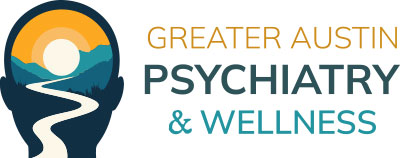
Ketamine Therapy

A New Hope for Mental Health
Ketamine-assisted therapy is an innovative approach to treating mental health conditions like treatment-resistant depression, anxiety, PTSD, and certain substance use disorders. While ketamine is traditionally used as an anesthetic in high doses, lower “sub-anesthetic” doses are now used off-label to help manage symptoms of various mental health issues. This treatment model has gained attention for offering relief to individuals who may not have responded to other medications, which often work by adjusting neurochemical levels on a daily basis.
Ketamine's Unique Approach
One unique aspect of ketamine therapy is the short-lived, non-ordinary (‘altered’) or transpersonal (‘transcendental,’ ‘mystical,’ or ‘spiritual’) peak experiences that may occur. For many clients, these experiences can lead to positive shifts in mood, insight, behavior, and motivation for change. This altered state of consciousness is believed to facilitate rapid transformation by temporarily shifting perception and consciousness, unlocking insights that may be difficult to access through traditional therapy alone. These profound experiences often contribute to lasting improvements in mood, perspective, and the healing of trauma.


How Does Ketamine Therapy Work?
Ketamine therapy usually involves a series of in-clinic sessions under clinician supervision. During these sessions, ketamine is administered in a carefully controlled setting, with preparatory and integration counseling provided as part of the process. Ketamine’s effects on the NMDA receptor in the brain are believed to help with mood regulation, pain perception, and cognition, with many patients noticing improvements within hours or days. This rapid action sets it apart from many traditional medications, which can take weeks to show effects.
For those considering ketamine-assisted therapy, we will complete an intake visit to discuss whether this treatment is a good fit and assess if ketamine is an appropriate option based on individual needs. During this consultation, potential benefits, risks, and suitability are reviewed to help ensure the therapy aligns with each person’s mental health goals. Ketamine’s potential to create positive, sustained results means that fewer sessions may be needed compared to other interventions, but each person’s experience is unique. This therapy offers a way to address unresolved mental health challenges with a new perspective, helping individuals work through barriers and move forward with a renewed sense of clarity.
